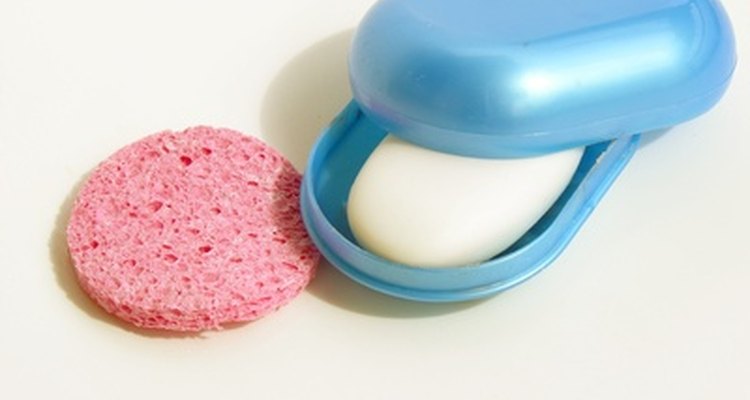
Founded by Andrew Pears in 1789, the Pears company produces a transparent scented soap bar composed of glycerin and natural oils. Pears soap is known for its old-fashioned composition--which hasn’t changed much since the Victorian age--and characteristic oval-shaped, amber-hued appearance. Though the company also produces liquid, gel and hand soap varieties, the term “Pears soap” generally refers to the brand’s transparent bar soap. Like most products, this soap features some disadvantages along with its benefits.
Price
As of 2010 prices, a bar of Pears Transparent Soap purchased online runs at an average price of $2.30 per 130 milliliter, 4.4 ounce bar. Though this isn’t nearly the highest end of bar soap pricing, it is more expensive than some other brands. Common brands of bar soap such as Dial, Dove or Zest--in their basic varieties--may be purchased at prices ranging from 99 cents to $1.50 per bar. However, Pears prices decrease slightly per bar when consumers purchase the soap in multibar packages. Comparatively, high-end soaps--such as designer bar soaps or soaps composed of all organic ingredients--may range from around $3.50 up to $8.00 per 3 to 5 ounce bar.
Bulk Options
Pears brand transparent bar soap is most commonly found in single-bar packages--this applies to both its original version and the green “oil clear” variety. While this may not be an issue for some consumers, many soap users like to buy their bar soap in bulk for convenience and value. Though three-bar packs of Pears are not impossible to find at retail, they are more rare than the single-bar packages. To conveniently buy Pears brand soap in bulk, consumers have to look online--an option not everyone is comfortable with--where they might find the rare 12-pack or even rarer 24-pack. Even in bulk, individual bar prices come to around $1.60 to $2.00 per bar (as of 2010). Other soap varieties are more readily available in bulk packages at retail stores for a cheaper average price per bar.
Ingredients
While Pears touts its soap as natural, some users may be wary of ingredients such as sorbitol, sodium palmkemelate, sodium rosinate, propylene glycol, sodium lauryl sulfate, PEG 4 and etidronic acid, among others. Though these ingredients may derive from more natural and gentle sources than some of Pears' competitors use, consumers might prefer “green” soap, or soap composed of entirely organic fruit and oil based ingredients. Pears company also promotes the gentleness of its soap, pointing out its hypoallergenic and noncomedogenic (meaning non-pore blocking) qualities, which make the soap friendly to sensitive or delicate skin. However, this means that while the soap likely won’t clog the skin’s pores, it may not be cut out for heavy-duty cleansing.
Related Articles

Facts on Zest Bar Soap
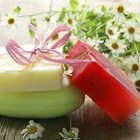
What Is Triple-Milled Soap?

The Benefits of Castile Soap

What Are the Benefits of Olive Oil Soap?
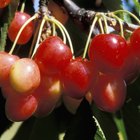
Nutri-Grain Bar Nutrition Information

Are There Benefits of Seaweed Soap?

Homemade Bay Rum Soap Recipe
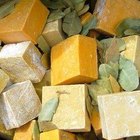
How Does Homemade Soap Compare to ...

Is Allantoin a Relative of the Lanolin ...

What Is Triple Milled Soap?
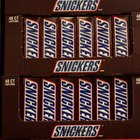
Snickers Bar Ingredients
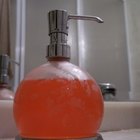
How to Make Medicated Soap

Benefits of Green Tea Soap
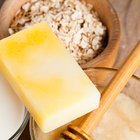
How to Make Honey & Oatmeal Soap
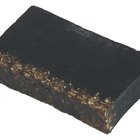
About African Black Soap
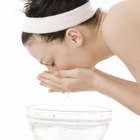
Cetaphil Gentle Skin Cleanser ...

Vitamin E and Glycerin Soap Benefits
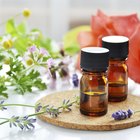
How to Make Antibacterial Soap

List of Soaps for Acne
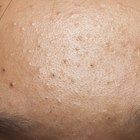
Lava Soap for Acne
References
Writer Bio
With a diverse professional background and a decade of experience as a freelance writer, Dan has contributed lifestyle content -- from fashion to travel to fitness and more -- to publishers including Chron, Fortune, Sony, GlobalPost, ModernMom, Moviefone, Salon.com, Techwalla and dozens of others.
Photo Credits
white soap and pink image by Maria Brzostowska from Fotolia.com